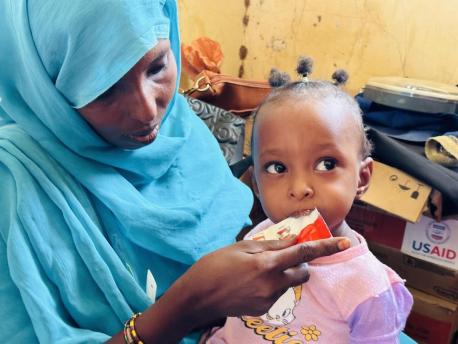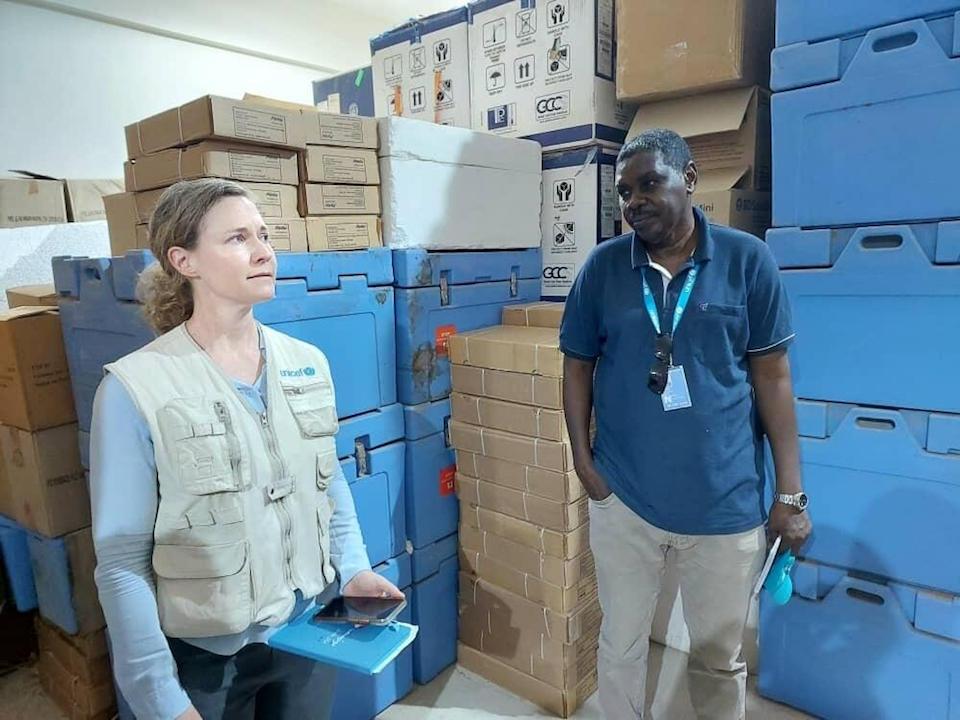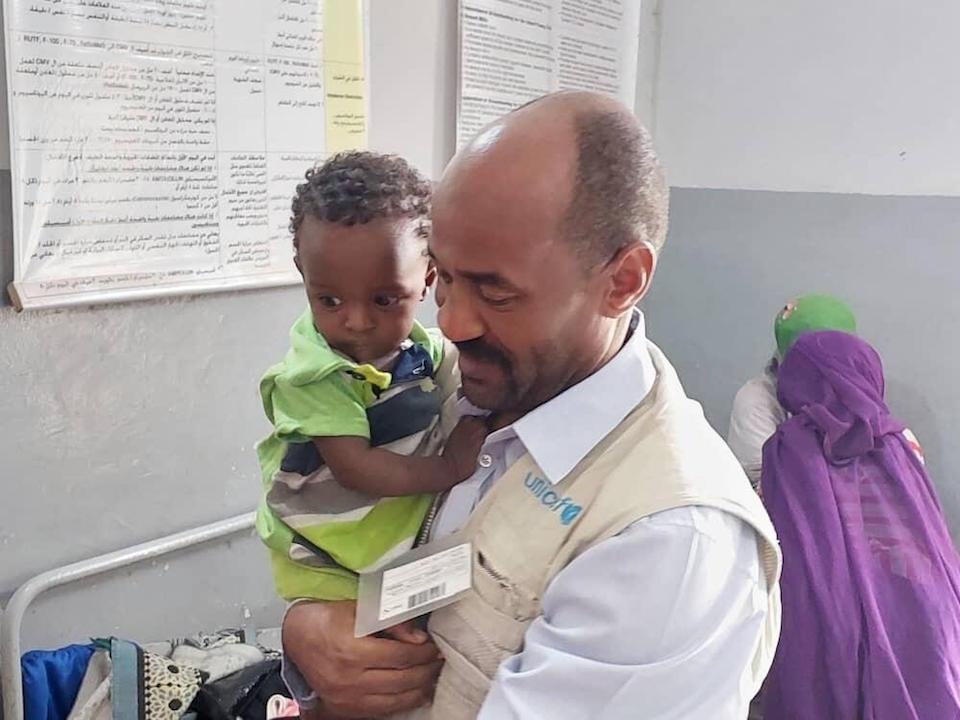
13.6 Million Children in Urgent Need in Sudan as Conflict Continues
UNICEF and partners are delivering critical supplies and maintaining vital health care services for children affected by the ongoing crisis in Sudan.
Six weeks after full-scale armed conflict erupted between warring groups in Sudan, the number of children in urgent need of lifesaving humanitarian support has risen dramatically.
A situation that was already dire for children before the conflict escalated is now at catastrophic levels: Food, safe water, electricity and telecommunications are either unavailable or unaffordable. Basic services have been cut off, schools shelled, hospitals and health centers looted, damaged and destroyed.
On the back of conflict, chaos and neglect, more children in Sudan today require lifesaving support than ever before.
— UNICEF Spokesperson James Elder
Over 1 million people have fled their homes and livelihoods since the fighting began; 319,000 — half of them children — have crossed into neighboring countries.
"On the back of conflict, chaos and neglect, more children in Sudan today require lifesaving support than ever before," said UNICEF Spokesperson James Elder, speaking from the Palais des Nations in Geneva on May 30. "A staggering — a sobering — 13.6 million children urgently require assistance. That's more than the entire population of Sweden or Rwanda or Portugal. All children. And the number is growing."

UNICEF is delivering supplies and maintaining services amid threats to security
Despite challenges with humanitarian access and security, UNICEF and partners have managed to deliver substantial amounts of support, including:
- delivering 2,300 megatons in trucks loaded with health, nutrition, water and sanitation, and learning/child protection supplies to the displaced population in Madani in east-central Sudan and to states across the country
- maintaining immunization services across 12 Sudanese states by securing vaccine supplies and distribution, as well as securing and monitoring the cold chain system for vaccine storage and delivery. At least 244,000 children were reached with polio vaccines since the start of the current crisis
- maintaining 80 percent of malnutrition centers across Sudan for the treatment of children suffering from severe wasting
- delivering 1,440 cartons of Ready-to-Use Therapeutic Food and health and hygiene supplies for more than 300 at-risk children in an orphanage in Khartoum
- offering psychosocial support to at least 5,500 children and their parents traumatized by the violence in Sudan
- providing 104,000 people with safe water through water trucking, and the operation, maintenance and rehabilitation of water supply facilities
- maintaining 356 alternative learning program centers in 10 states including West Darfur, and providing secure learning spaces for 16,812 girls and boys
Children need to feel safe and protected
For children caught up in the conflict, having a safe place to play and just be kids for a while is essential. UNICEF sets up Child-Friendly Spaces and provides recreation kits containing sports equipment and games to help children recover from the trauma and stress they've experienced.
Eyes lit up as UNICEF staff distributed skipping ropes, soccer balls and basketballs to children at Al-Amireya Primary School in Kassala, eastern Sudan. "This is a center for recreational and psychosocial activities for children affected by the fighting," says UNICEF Education Officer Jabir Mansour Adomah.

Much more needs to be done
UNICEF's overall appeal to aid children caught up in the conflict in Sudan has increased by $253 million to $838 million, including to expand the treatment of more than 620,000 children suffering from severe acute malnutrition, half of whom may die if they do not receive prompt attention.
"As the conflict in Sudan rages on, the toll on children continues to grow more devastating by the day," said Adele Khodr, UNICEF Regional Director for the Middle East and North Africa. "These children are not just numbers, they are individuals with families, dreams and aspirations. They are the future of Sudan, and we cannot stand by while their lives are torn apart by violence. The children of Sudan deserve a chance to survive and thrive. No efforts should be spared by all actors to protect the children and their rights."
Help UNICEF reach children caught in conflict with the urgent support and services they need. Your contribution can make a difference. Please donate.


